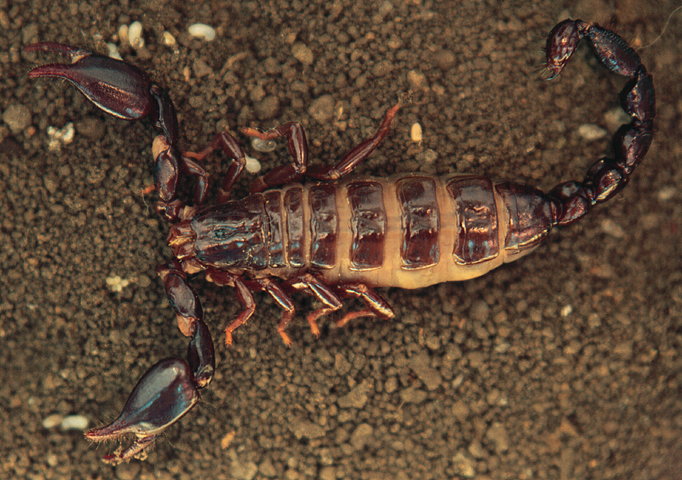Didymocentrus krausi
|
||
|
||
Common names:
This species was formerly known as D. concavimanus.
Distribution:
Costa Rica, El Salvador, Honduras and Nicaragua.
Habitat:
This species lives under stones and fallen tree trunks, where it makes
a small burrow. It has also been found under the bark of fence posts and small trees.
D. krausi has so far only been reported from dry Pacific forrests (100 to 400 meters above the sea).
Venom:
No available data, but the species is not mentioned in medical literature.
This species has probably no medical significance .
Selected litterature:
Scorpions of Costa Rica by Carlos Viquez.
Stockwell, S. A. 1988. Six new species of Diplocentrus Peters from Central America
(Scorpions, Diplocentridae), J. Arachnol. 16:153-175
Armas, L. F. 1996. Didymocentrus concavimanus Francke y Stockwell, 1987, sinonomi de D. krausi
Francke, 1978 (Scorpiones: Diplocentridae). Rev. Nica. Ent. 34: 29-31.
On the Internet:
INBIO on Didymocentrus krausi (In Spanish).
General:
This is a small scorpion reaching 35-40 mm in lenght. Adults are light brown to reddish in color, but immature
specimens have a more creamy color with numerous brown markings on the dorsal area and on the abdomen. Adults have
a hard and shiny look.
This an gressive species, which will quickly raise both its tail and its pedipalps when disturbed.
This species is probably not kept in captivity by hobbyists.
The information on this page is
based on the website (link above) and the book Scorpions of Costa Rica with permission from the author Dr. Carlos Viquez.
Didymocentrus krausi photo by Dr. Carlos Viquez
(C)
